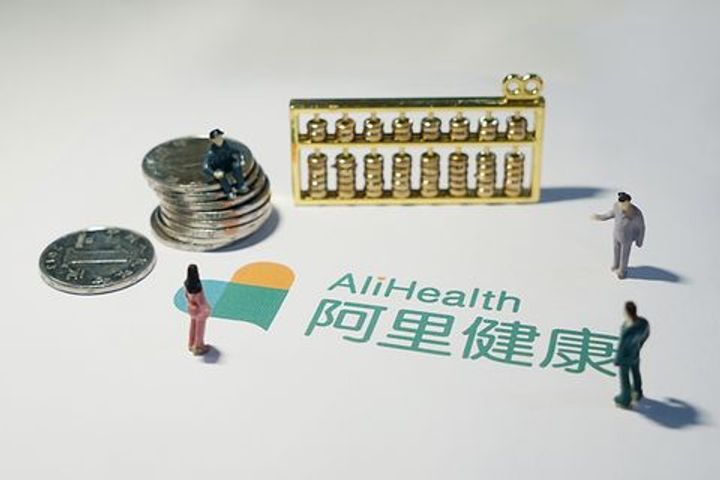 AliHealth Reports Substantial Increase in Product Sales in First Half of Financial Year 2018
AliHealth Reports Substantial Increase in Product Sales in First Half of Financial Year 2018(Yicai Global) Nov. 17 -- Alibaba Health Information Technology Ltd. [HK:0241] (AliHealth) posted CNY890 million (USD134 million) revenues and CNY255 million gross profit between April 1, 2017 and Sept. 30, 2017, up 1,516 percent and 437 percent, respectively, from a year earlier, according to its first-half earnings reports for fiscal year 2018. Net losses after adjustment were CNY34 million, down 30.2 percent annually.
The increase in AliHealth's first-half revenue was mainly due to the rapid increase in health product sales. AliHealth achieved CNY786 million in health product sales in the first half of fiscal year 2018, an increase of 49,65 percent from the previous year.
The increase in health product sales was due to a sharp increase in online sales at its proprietary AliHealth Pharmacy and overseas flagship stores, AliHealth said in its earnings report.
AliHealth already adjusted its drug retail sales strategy last year in the wake of policy changes. The central government called off pilot online drug retail sales on third-party platforms last year. In response, AliHealth rolled out its own business-to-customer (B2C) business by acquiring Guangzhou Wuqiannian Pharmaceutical Chain Co., which was later renamed AliHealth Pharmacy.
Its pharmacy on e-commerce marketplace Tmall also transformed to provide value-added services for online drug retailers while charging service fees. In September this year, 'blue hat' health food business on Tmall was injected into AliHealth and became an important source of service revenue for the latter. Service revenue from Tmall's online drug platform and health product platform totaled CNY67 million between April 1 and Sept. 30 this year, up 2,066 percent annually, per its earnings report.
Although health product sales and e-commerce platform services are AliHealth's main sources of income, innovative fields such as smart healthcare and health management will be the company's key focus areas for development in the future, AliHealth told Yicai Global.
It has rolled out several projects in smart healthcare innovation since the second half of this year. In July, AliHealth unveiled its medical artificial intelligence (AI) product 'Doctor You,' which applies AI to medical imaging. In August, AliHealth kicked off a pilot project focusing on medical union + block chain in partnership with Changzhou in East China's Jiangsu province. Last month, it signed agreements with the First Affiliated Hospital of Zhejiang University Medical School, the Second Affiliated Hospital of Zhejiang University Medical School and Xinhua Hospital Affiliated to Shanghai Jiaotong University Medical School to build smart hospitals.
Between April and September this year, AliHealth spent CNY61 million on product development, an increase of 21.7 percent annually, per its earnings data. It mainly used the money to hire more information technology engineers to help expand its medical service networks, build health management platforms and develop medical intelligent analysis engines.